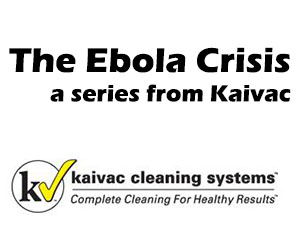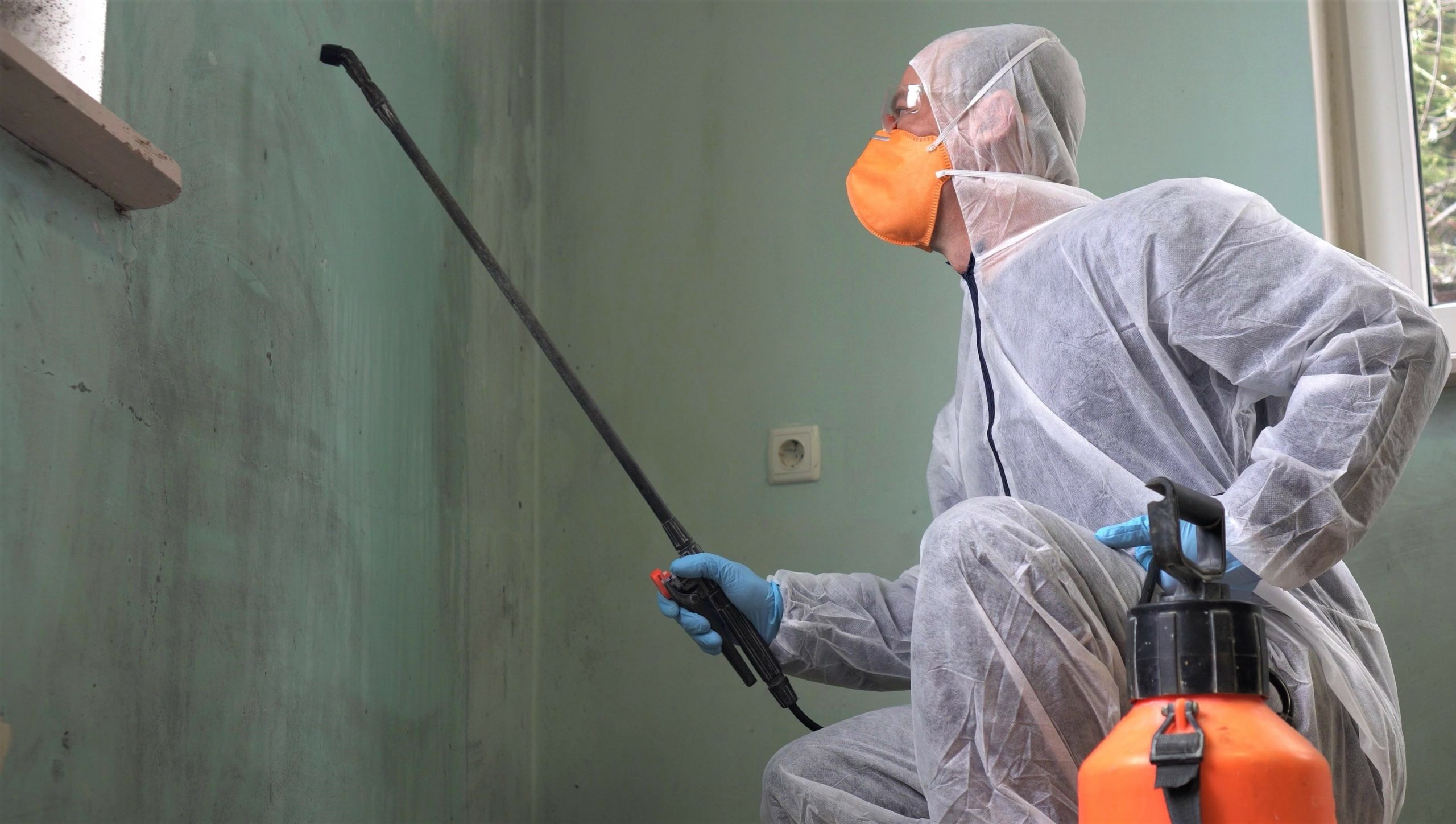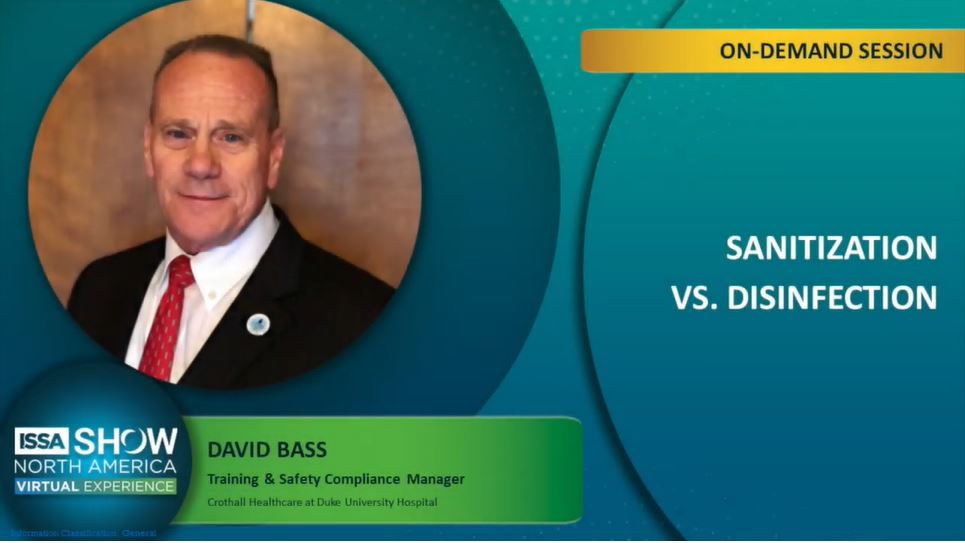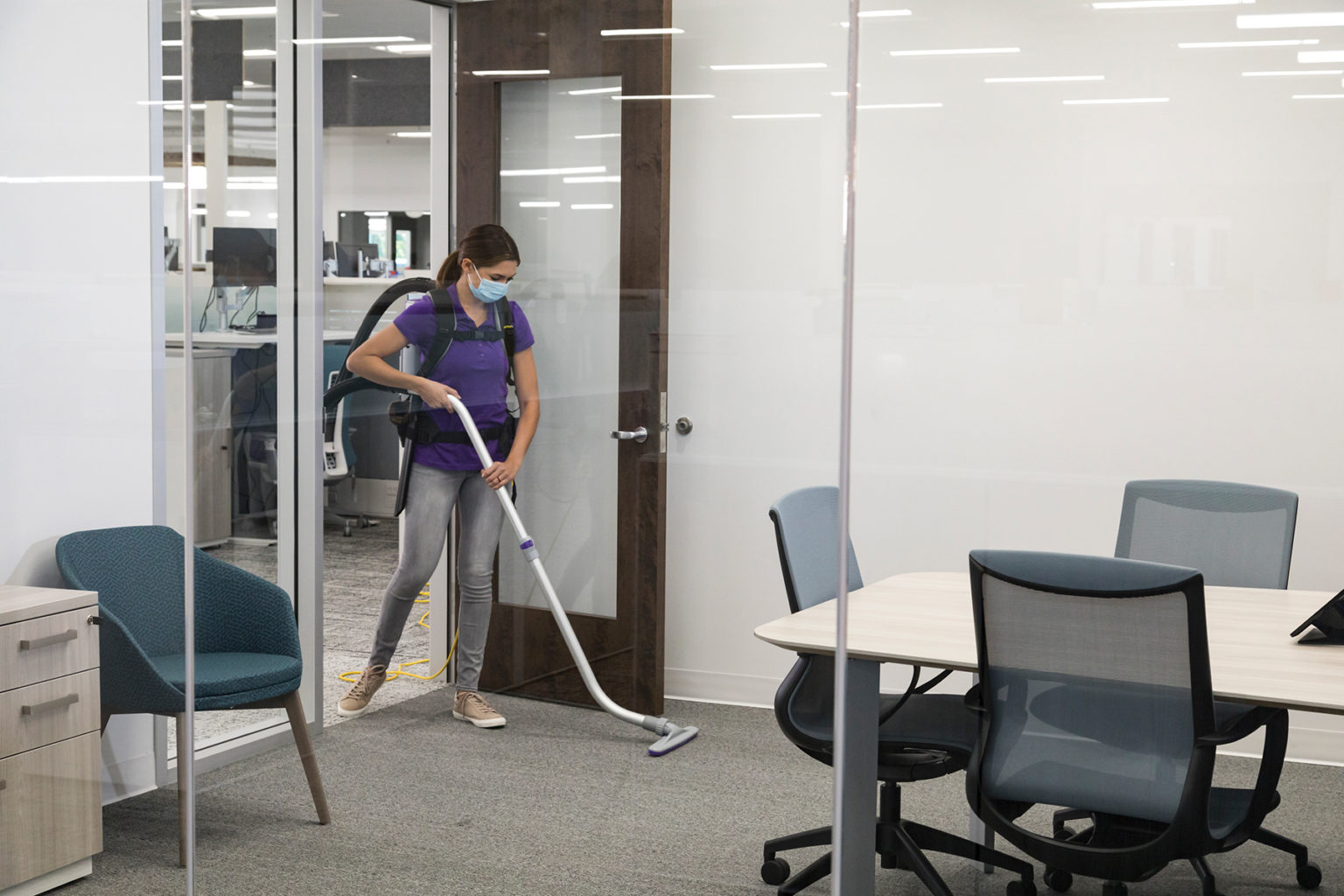Hamilton, OH – With the Ebola outbreak now on U.S. shores and spreading throughout Africa, Kaivac, developer of the No-Touch and OmniFlex cleaning systems, is releasing the third in a series of advisories designed specifically to help cleaning workers stay safe and healthy.
The first advisory dealt with new hand washing guidelines. This advisory focuses on things cleaning professionals should know about Ebola, especially when going about their cleaning duties.
“The first thing we should know is that Ebola is not considered transdermal [passing through skin],” says Matt Morrison, Communications Manager for Kaivac. “But what can happen is the worker will touch a contaminated surface and then touch his/her eye, mouth, nose, etc., and that’s when the disease can spread.”
If you are concerned that you may have become infected, public health officials recommend taking your temperature every day for 21 days. If your temperature does go up, take emergency precautions as outlined in your community.
Additional defenses outlined by Morrison include the following:
- Keep food stored in a staff refrigerator covered and sealed, and wash hands before touching food items.
- Separate your food utensils-forks, spoons, plates, etc.-from those of other staff.
- When working, always wear gloves. Also keep a supply of hand sanitizers available, and use them frequently.
- Incorporate a “touch then wash” rule; if any surface is touched without a glove, wash hands or use a hand sanitizer.
- Use (wet or dry) disinfectant wipes to clean all “high-touch” items (door handles, light switches)
- Use (wet or dry) disinfectant wipes to clean items not usually cleaned such as the tops of trashcans or the tops of chairs that may be pulled to make way for vacuuming. View every surface as fair game to harbor germs and bacteria.
- To avoid touching surfaces entirely, select what ISSA calls “spray-and-vac” cleaning systems to clean fixtures, counters, and floors.
“When using hand sanitizers, we must also understand how they work,” adds Morrison. “While they can help kill germs and bacteria on hands when used, they do not remove soil that can spread disease. This requires effective hand washing.”
###
Media Contact: Robert Kravitz, rkravitz@rcn.com, 773-525-3021






